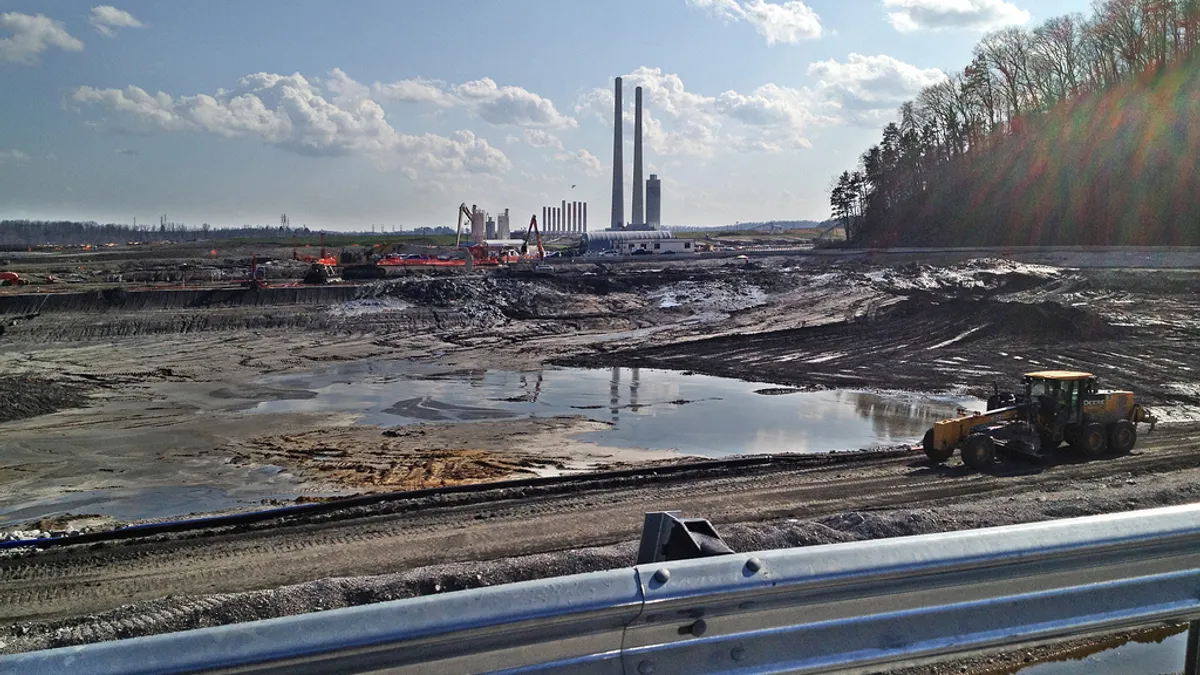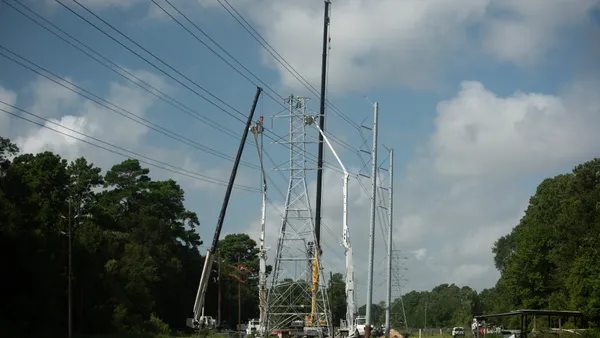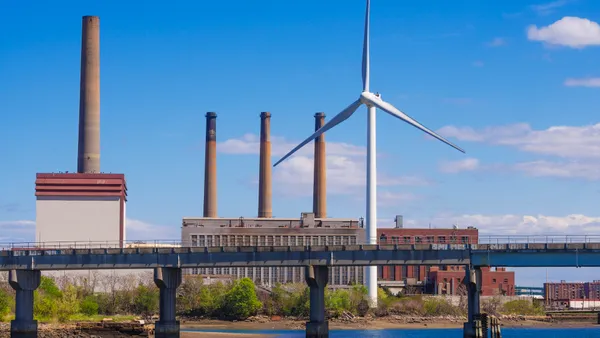Dive Brief:
- North Carolina is still considering how to deal with coal ash waste from Duke Energy's plants in the state, with a new law giving the utility more options as a state toxicologist causes headaches for top officials.
- A law passed in July would give Duke the option of capping coal ash ponds in place, as long as it could provide permanent drinking water to some residents by 2018, and meet other requirements.
- And The News & Observer notes Ken Rudo, a state toxicologist who challenged Gov. Pat McCrory's decision to rescind do-not-drink notices in areas around the coal ash ponds, is facing backlash from the McCrory administration.
Dive Insight:
North Carolina's coal ash issues are spiraling, with the state's top official appearing to attack those opposed to Duke Energy's cap-in-place plan while a new law would allow the waste to stay put.
Southeast Energy News takes a look at on alternatives to excavating the waste from more than 30 coal ash ponds in the state. The North Carolina Department of Environmental Quality in May directed Duke Energy to excavate coal ash from all of its holding ponds in the state by 2024. But now, a new law would allow for cap-in-place solutions, so long as Duke can provide permanent drinking water solutions for residents, and agrees to repair dams holding the ponds in place.
Environmentalists, however, say there are specific issues with North Carolina's coal ash pond locations that make leaving them in place a poor option.
"There are a number of problems with the sites in North Carolina," Catawba Riverkeeper Foundation's Sam Perkins told Southeast Energy News. "First and foremost, they are unlined, and that is a major problem with capping them in place. In some cases, a vast majority of the ash lies below the groundwater table – that's in the engineering reports. There is significant concern about continued leaching because of lateral groundwater movement," he told the news outlet.
Ken Rudo, a state toxicologist, is being vilified by Gov. McCrory for his previous statements on the safety of drinking water near the ponds. Rudo declined to comment for the News & Observer article, and said his on-the-record public statements sufficiently sum up his position.
The state issued do-not-drink notices to some area near coal ash ponds, but subsequently rescinded those. According to Rudo, levels of vanadium in the water are too high—be he acknowledged the difference in viewpoint between public health officials and others.
“The levels we’re seeing, it’s a low risk, but it’s higher than what we in public health consider to be safe,” Rudo said in a previous hearing. “And sometimes that view might be different from others'."
North Carolina environmental regulators' recommendation earlier this year to classify eight of Duke's coal ash ponds as high priority under the state's Coal Ash Management Act would mean excavation was required by 2019. Another 25 would need to be excavated by 2024.














